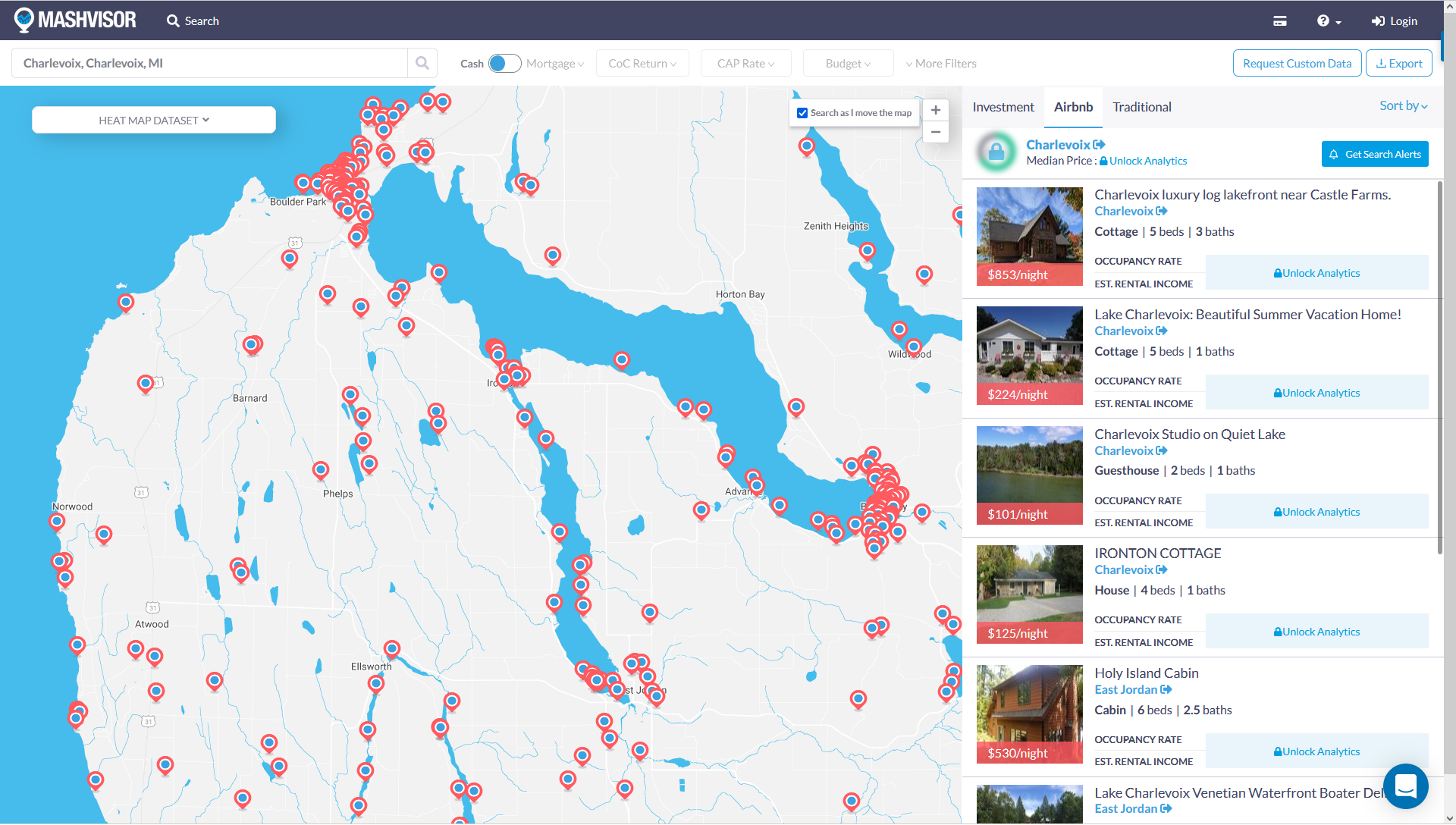
/ Airbnb - VRBO /

Description:
A short-term rental (STR) is typically a converted residential home that’s rented out to the public on a nightly or weekly basis for profit. Airbnb and VRBO are on-line digital marketplaces that connect STR properties with people who are looking for overnight accommodations in attractive locations. Revenue is generated by charging a service fee split between the host and guest when a transaction occurs.
As these digital sites continue in popularity entrepreneurs are scouring residential neighborhoods for “listed” homes (especially in lake-side communities) and converting them into vacation rentals. With Airbnb type platforms offering a never-ending supply of renters, the trend of decimating lakeside communities for profit will continue until communities rise up and say enough!
Predator:
A fitting analogy refers to the construction of the Welland Canal. A waterway which now connects the Atlantic Ocean to all the Great Lakes. This technological marvel allows large ships to route around Niagara Falls facilitating the movement of materials for commerce. But the canal also mobilized another unwelcome traveler, the blood-sucking sea lamprey. By 1938, the native Atlantic Ocean lamprey made its way into the Great Lakes. Each predator was able to kill over 40 pounds of fish within a 12-18 month feeding period. By the early 1960s, the once thriving Great Lake fisheries were devastated.
The internet is also a technological marvel. It’s ability to connect the world has facilitated a global economy by allowing once impoverished countries access to markets. The benefits are endless, but it too has allowed unwelcome travelers, digital exploiters. To exploit is to take advantage of a situation for one’s benefit. In the case of STRs, the managers of these digital platforms have and continue to exploit residential neighborhoods for profit. They do so under the guise of property-rights but knowing full well that their product is no different than the sea lamprey that has sucked the life from unsuspecting fish. The only difference is the life that’s being preyed upon is family-oriented communities.
Casualties:
Residential neighborhoods are not the only casualty of the STR movement. Housing shortages across the U.S. are being exacerbated by investors displacing family homes with vacation rentals. When a home comes to market in a lake community the potential for rental income is almost immediately displayed on websites catering to investors. Having the resources to outbid the typical family, the home is lost as a residential dwelling.
Motel & Hotel:
Like other industries that have fallen prey to digital platforms, the motel and hotel industries are no exception. What was once a thriving business model for the hotel trade is now being chipped away by short-term rentals that aren’t burdened with the same overhead and regulatory costs. Consequently, these industries are unable to compete on a level playing field.
Airbnb Growth:
With Airbnb and VRBO like entities growing exponentially, residential neighborhoods will no longer exist as you once knew them. Instead, it will be dotted with commercial properties with the sole purpose of revenue generation. Don’t think this can’t happen where you live, think again, it’s happening worldwide especially in lake communities.
This is a growing industry and the stakes are high. In Michigan where the real estate lobby is the largest contributor to political campaigns and benefits handsomely with the proliferation of STRs, they have pushed legislators to adopt bills taking away local government’s authority in managing STRs. Essentially, townships and other local governments would no longer be able to regulate STRs in vulnerable neighborhoods. Shown above is a map from Mashvisor.com displaying the foothold STRs now have in lower Northern Michigan. Please note that the graphic only shows Airbnb rentals. Others like VRBO are not listed. We predict this is just the beginning of the onslaught unless Michiganders are unyielding with their representatives about protecting residential neighborhoods.